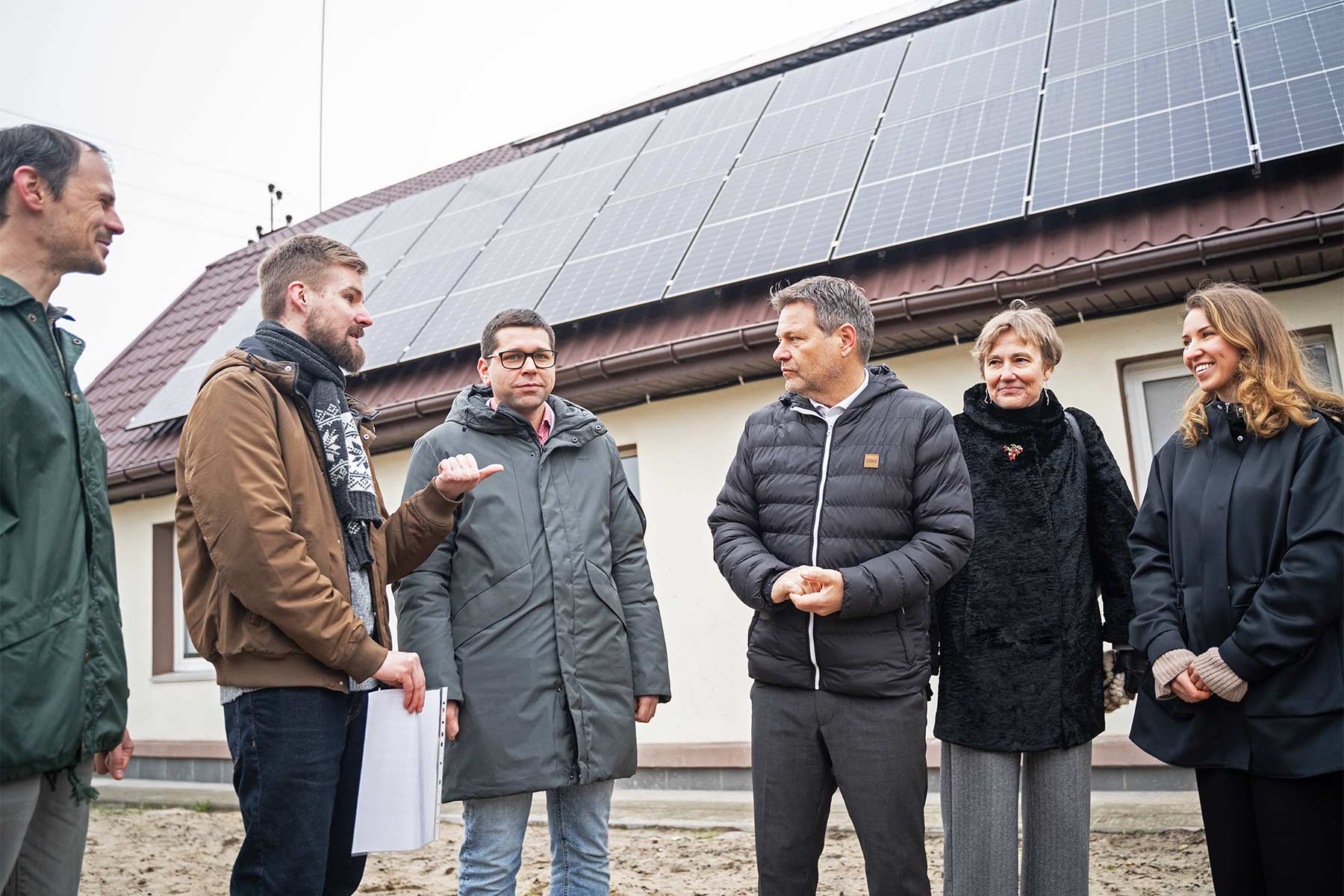Photo © Oleksandr Popenko / Greenpeace
The German government will allocate €1M for green reconstruction projects in Ukraine. Robert Habeck, Vice-Chancellor and Federal Minister for Economic Affairs and Climate Protection of Germany announced this during a meeting with non-governmental organizations Ecoaction, Ecoclub, Energy Act for Ukraine Foundation and Greenpeace CEE.
It is symbolic that the meeting took place at the outpatient clinic in Horenka, Kyiv region, where such green reconstruction project was implemented. Recently, NGOs helped install a heat pump and a hybrid solar system at that building, enabling it to meet its energy needs in a safe and sustainable manner and with less impact on the environment.
This initiative of the German government is important for several reasons. It will provide additional funds for the reconstruction of destroyed infrastructure according to more sustainable practices: with compliance with energy efficiency standards, solar panels or other renewable energy technologies, etc. It is especially important for Ukraine as another signal that such approaches to reconstruction should be prioritised and become the basis of national recovery plans.
That is why, in early February 2023, Ecoaction and other NGOs wrote a letter to Mr. Habeck, urging him to prioritise the “greening” of the emergency energy aid and support decentralised generation, specifically through projects aimed at installing small-scale renewable energy sources in Ukrainian communities.
“The future of Ukraine’s energy system and its security lies in decentralised generation based on renewable energy sources. Ecoaction is working to ensure that the Ukrainian authorities prioritise this area of reconstruction as well as the support from our international partners. We are delighted that those who sought support for more sustainable projects were heard in Germany. And hope to have more such news in the future,” says Kostiantyn Krynytskyi, head of the energy department at Ecoaction.
Small-scale, decentralised energy generation has already proven its value for communities, particularly in the context of reconstruction of buildings destroyed by russia. For example, Horenka outpatient clinic was able to operate reliably even during power outages after renewable energy equipment was installed, resulting in energy savings of up to 60%.
Other NGOs also promote decentralised generation. For instance, Ecoclub, in collaboration with the Solar Energy Association of Ukraine, has launched a Solar Aid For Ukraine project, and has already installed a PV station at a hospital in Zviahel, Zhytomyr region, and is currently raising funds for four more similar projects. The Energy Act for Ukraine Foundation also promotes renewable energy through the “100RESforSchools” and “50RESforHospitals” campaigns. With the support of partners, the foundation has installed a PV station with storage at the Irpin Academic Lyceum “Mriya” and also works on similar projects in medical institutions of Kyiv and Chernihiv regions.
It is important that such projects do not remain just isolated initiatives of NGOs or international partners, but rather become a priority in all state programs to reconstruct buildings and transform our energy infrastructure. Only governmental support can help to make such projects widespread, buildings – energy-independent, and the energy system stable and built on renewable energy sources that are less harmful to the environment.
For more information please contact:
Oleksandra Khmarna, okh@ecoact.org.ua
This article was prepared in the framework of the project “Closing the loop: a just energy transition designed by capitals and regions” with the financial support of the European Union. Its contents are the sole responsibility of NGO Ecoaction and do not necessarily reflect the views of the European Union.


